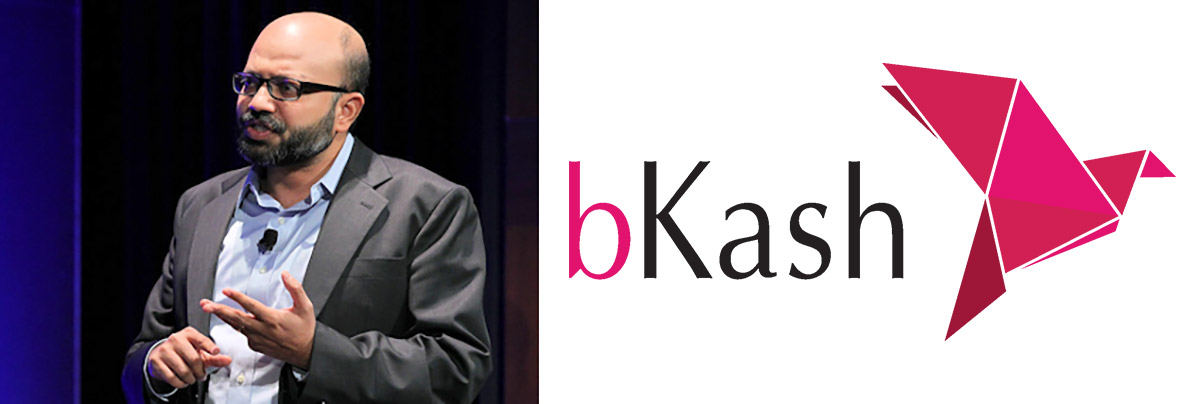Why has bKash been in the news?
In November 2021, Bangladeshi FinTech, bKash, announced an investment from SoftBank’s Vision Fund 2. The company will use the reportedly $250m investment to develop the platform further and add more users to their existing 56 million. SoftBank is joining an existing group of shareholders that includes the International Finance Corporation (invested in 2013), the Bill & Melinda Gates Foundation (invested in 2014) and Ant Group (invested in 2018). Insiders report that the latest funding round valued the company at over $2bn. SoftBank injected new capital and purchased around 10% of the company from an undisclosed existing shareholder.
bKash has also recently announced integrations with MoneyGram, blockchain-based global payments provider Ripple, and Malaysian mobile wallet provider Mobile Money.
What opportunity set does bKash target?
bKash targets Bangladesh’s 165m population with a mobile application that provides easy access to banking services. As with many frontier market “mobile-first” FinTechs, bKash is filling an acute gap in the financial system left by traditional banking institutions. This fact is reflected in the company’s focus on low-income groups within the country.
For context, more than 70% of the population of Bangladesh lives in rural areas where access to formal financial services is difficult. Even by the most optimistic estimates, only 40% of the adult population hold a bank account, which represents a huge challenge for the working poor, many of whom migrate from villages to towns, cities and even overseas in search of work, and who have no choice but to use informal channels to send money home. The only channels that do exist attract extremely high fees.
In recent years, the development of digital infrastructure in Bangladesh has presented an opportunity for companies like bKash to be a user’s first formal interaction with the financial sector. The market has in many ways skipped the offline era many developed markets experienced – with the associated baggage and dated infrastructure – starting instead from the digital age. So, whereas only a fraction of the population has access to banking, over 68% have mobile phones. bKash can be accessed via all the mobile networks operating in Bangladesh.

What is bKash?
Established in 2011, bKash Limited (bKash) is a “Bank-led” Mobile FinTech in Bangladesh operating under the license and approval of the central bank (Bangladesh Bank). The company started as a joint venture between BRAC Bank Limited, Bangladesh and Money in Motion LLC in 2010. Between 2013 and 2018, the company gained the IFC, Bill and Melinda Gates Foundation and Ant Financials as shareholders.
bKash provides secure, convenient, and easy ways to make payments and money transfer services via mobile phones to both the unbanked and the banked people of Bangladesh. In 2020, the company introduced new products, including those that enabled sending money to non-bKash users, while also adding major new billers to the bill pay product. With this, any public utility bills can now be paid through bKash, propelling the customer-base to 56m. In addition to receiving remittances instantly, bKash wallet users can pay for various products and services, including mobile credit recharge, utility bill payments, and payments for food delivery and ridesharing services. Looking at the company’s financial statements, bKash’s revenue was $310m in 2020, representing near 80% cumulative growth since 2016 when revenues were $173m.
In November 2021, it was announced that Digital P2P payments provider MoneyGram International, Inc. integrated with bKash to enable all its users to receive funds in real-time globally. This integration is part of MoneyGram’s ongoing collaborative effort with Singapore-based Thunes; a B2B company that supports more than 60 currencies, enables payments to 115 countries, accepts close to 300 payment methods and enables customers and businesses to send and receive payments from anywhere in the world.
Earlier this year, bKash also partnered with blockchain-based global payments provider Ripple and Malaysian mobile wallet provider Mobile Money to enable wallet-to-wallet digital transactions on the RippleNet network between the two countries, according to PYMNTS.
Key Takeaways
- There is a huge opportunity for mobile-first banking solutions to fill acute gaps in the financial systems of frontier markets. Of the 2 billion unbanked adults globally, virtually all are in developing countries.
- The best FinTechs provide innovative – and highly localised – solutions to meet the base needs of a large addressable market. This compares to developed market challengers for whom the most significant hurdle is persuading an arguably overbanked/overleveraged populous to switch from deeply embedded high street banks.
- Frontier markets also have young and increasingly tech-savvy populations without preconceived ideas of how things ‘should be’.
- Given high banking penetration in developed markets, the cost of tempting customers away from incumbents is exceptionally high. However, in frontier markets, customer acquisition can be near zero.
- Given bKash’s huge user base, they will now be able to layer on many additional services to further build out their ecosystem, monetising each business line in the process.